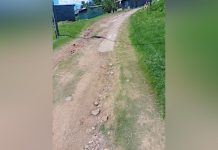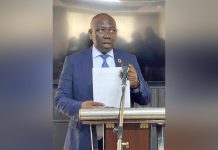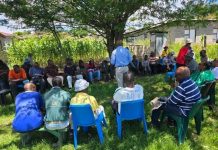Africa-Press – Lesotho. RESIDENTS of Qacha’s Nek town are feeling the brunt of load shedding taking place in South Africa, thepost heard this week. The residents complained that their electronic appliances were being damaged because of the regular power cuts and “the government has been unresponsive to our cries for help”.
The power cuts however have not affected the business sector after the Lesotho Electricity Company (LEC) bought a standby generator for them. The LEC spent about M11.6 million to buy two standby generators, one for Qacha’s Nek and another for Mokhotlong district which also suffers from load shedding.
Qacha’s Nek and Mokhotlong districts get power directly from Eskom and so when South Africa implements load shedding, they also suffer. The rest of Lesotho gets its electricity from the ’Muela Hydro-Power Station.
The residents said their electronic appliances such as fridges and televisions were getting destroyed every time there is load shedding, which happens twice or thrice every week, especially in winter.
A South Africa-based Electrical Contractors’ Association (ECA)’s website says while poor quality products and bad installations can cause problems, “load shedding will damage even the best of electronic products on the market, eventually leaving them broken beyond repair”.
“The reason for this is not the loss of power, but the surge of current and voltage spikes when the electricity is switched on again,” the ECA quotes Rhodam Evans from Major Tech as saying.
The ECA says single-phase power in the average home runs on 230 V and when the lights come on again, all the appliances in that particular suburb suddenly get a surge and voltage spike much more powerful than 230 V.
“This only lasts for a microsecond, but it is enough to damage electrical equipment, from your television to your lights,” Evans is quoted.
“Even the most-well-designed equipment of the highest quality can simply not handle these surges time after time.
Many electrical devices are built with some form of protection against voltage spikes, but these are designed to handle surges that happen occasionally, not daily or even multiple times daily.
” This explains why residents in Qacha’s Nek say they have lost appliances because of load shedding.
One of the residents, Bami Lepheane, said his TV set shut off and he took it to a repair and when the load shedding hit again within a month the TV broke down for good.
“The government has to do something about this,” Lepheane said. Mokoali Tlali, another resident, said he was advised to buy surge protectors after losing two radio sets within two months.
Thabo Setlaba, the Souru FM station manager, said the frequent load shedding is giving him “such a big problem at the radio station”. “Whenever the electricity is off, that means the radio is also off, we are really facing a problem in Qacha’s Nek,” Setlaba said.
“The equipment that we use gets damaged because no one is ready when the electricity will be off,” he said.
“We have a government that does not care,” he said, adding that the government only cares for the interests of the elites.
“It has been ages since the government promised to generate electricity for Qacha’s Nek locally but even today we are using electricity from South Africa.
They have made promises but the government has failed to fulfill such promises. ” Likopo Mosesi said this load shedding problem hinder people from doing their day-to-day work.
“When the electricity is off the food gets rotten, we cannot freely communicate with our friends through social media because our phones will also be off and sometimes we will have no food because some of us use electrical stoves only,” Mosesi said.
“This is a very serious problem,” she said.
Mosesi added that if this electricity was generated locally, that would have been better because by the time it gets off, the LEC would quickly work on the problem.
“But the fact that it is not generated locally means sometimes we spend some three days without it or even a week,” she said.
In the 2020/2021 financial estimates, the then Finance Minister Dr Moeketsi Majoro proposed construction of 10 mini-grids to assist power supply in Qacha’s Nek and Mokhotlong.
Majoro, now the Prime Minister, said construction of 10 mini-grids and 10 energy centres was planned for 2020/21 in Mokhotlong, Thaba-Tseka, Mohale’s Hoek, Quthing and Qacha’s Nek.
For More News And Analysis About Lesotho Follow Africa-Press






